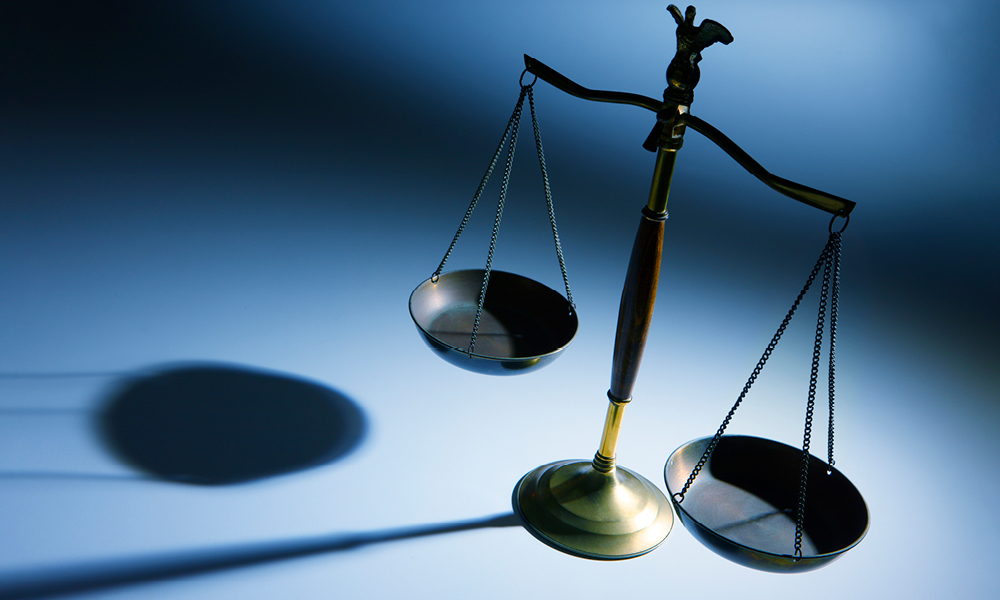The Royal Commission into Violence, Abuse, Neglect and Exploitation of People with Disability was formally established in April 2019 and began public hearings and consultations across the country.
Prior to all public hearings being suspended from March, one of the most significant issues that was repeatedly raised concerned the barriers and challenges experienced by people with disability in accessing the criminal justice system and the justice system generally.
The commission has heard that people with disability who have experienced or witnessed violence, abuse, neglect or exploitation face significant barriers in seeking justice.
A public workshop held on 2 September 2019 specifically focused on people with disability in the criminal justice system and explored issues relating to policing practices, arrest, charge, prosecution and legal and court processes.
In its issues paper1 on the criminal justice system, published on 14 January 2020, the commission acknowledged that people with disability may come into contact with the criminal justice system either as victims, accused persons, or as witnesses.
People with disability are overrepresented across the criminal justice system in Australia, with disproportionately high rates of arrest, charge, prosecution and incarceration, with significant negative flow-on effects in other areas of their life. They are at a heightened risk of violence, abuse, neglect and exploitation in criminal justice settings.
The criminal justice system is often used to ‘manage’ people with disability who experience multiple hardships rather than being supported in the community. There is also evidence of systemic criminalisation of disability which is often related to undiagnosed disability.
A range of systemic and structural problems prevent people with disability from accessing justice and fairly participating in the criminal justice system on an equal basis with others. The barriers are complex and various, and may arise as a result of:
- systemic criminalisation of disability and intersectional discrimination (including due to race and sex, linguistically diverse backgrounds, First Nations people, or the nature of a person’s particular disability such as a cognitive or psychosocial impairment)
- physical barriers to accessing services
- communication barriers
- the attitudes, values and assumptions of legal professionals and others, such as a lack of understanding of the rights of people with disability by those who work in the criminal justice system
- the absence of appropriate supports to address the above factors when navigating the criminal justice system.
For example, a person with disability may:
- be reliant on the perpetrator of abuse or other crime for their ongoing support, or even to make a report or complaint, in the context of both private and institutional support settings
- not be believed, or have difficulties in making people understand the level of threat they are facing, especially when the perpetrator of abuse or other crime is the primary support giver or a justice agency
- be denied access to information needed to understand and enforce their legal rights
- not have their experiences considered worthy of investigation by authorities
- have their legal capacity called into question, or
- not be aware that they are in fact experiencing abuse or other crime.
These access to justice issues, particularly in the context of the criminal justice system, were scheduled to be addressed in a public hearing this year.
We expect that the commission will also focus in future issues papers and hearings on the experiences of people with disability in relation to other specific justice system issues, including with respect to legal capacity issues, unequal access to justice, and ineffective complaint processes.
Note: The terms of reference2 broadly direct the Royal Commission to inquire into all forms of violence, abuse, neglect and exploitation of people with disability in all settings and contexts. The commission’s progress made to date is outlined in the first progress report3 published in December 2019. The commission’s interim report was due to be delivered in October 2020, although it is expected that this will be delayed due to the impact of COVID-19 on the commission’s activities and the postponement of the previously announced hearing schedule for 2020. Further updates are available at disability.royalcommission.gov.au/newsand- media/coronavirus-covid-19-update.
Footnote:
1disability.royalcommission.gov.au/system/files/2020-02/ Issues-paper-Criminal-justice-system.pdf.
2disability.royalcommission.gov.au/about-royalcommission/ our-terms-reference.
3disability.royalcommission.gov.au/sites/default/ files/2020-01/first-progress-report.pdf.
This article appears courtesy of the Queensland Law Society Access to Justice and Pro Bono Committee. Luke Geary is a partner and Naomi Brodie is an associate at Mill Oakley. If you have an interest in this topic, or other access to justice topics, and want to share your views, please email e.shearer@qls.com.au. Elizabeth Shearer is Deputy President of QLS, chair of the committee and Legal Practitioner Director at Shearer Doyle Law.
This story was originally published in Proctor May 2020.













Share this article